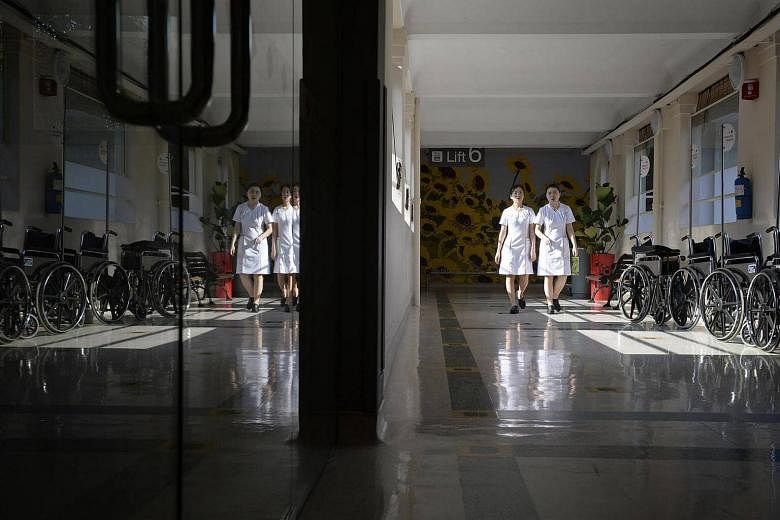Around 9,000 more people are needed in public healthcare and community care over the next three years, as demand rises for healthcare services.
This is why the Health Ministry (MOH) is investing $24 million to get those making a mid-career switch on board.
"Growth in the healthcare sector will bring many good jobs - clinical and non-clinical, and at different levels - for Singaporeans," Senior Minister of State for Health Amy Khor said yesterday during the debate on the ministry's Budget.
Over the next three years, this works out to around 2,700 more nurses, 4,500 more support staff and an additional 1,800 other professionals, managers, executives and technicians.
Mr Patrick Tay (West Coast GRC) said the healthcare sector is "poised to absorb many more workers", including those who lost jobs, or women returning to the workforce.
Dr Khor said a new overseas graduate scholarship will be launched for those who do not have nursing degrees but want to join the sector. They will pursue a two-year master's programme and serve as registered nurses after they graduate.
She said MOH expects to give out 20 scholarships each year, both to fresh graduates and to those who have work experience.
Funding for nursing professional conversion programmes will also be raised, to the extent that employers will need to pay only 10 per cent of the training cost, compared with up to 50 per cent currently. Employers will also get up to $16,000 for on-the-job training for each nurse who made a mid-career switch.
Funding will also go towards on-the-job training for support staff like basic care assistants - who free up nurses' time by performing simple tasks - as well as healthcare and therapy assistants. Employers will get $10,000 for on-the-job training for each person hired in these roles.
In response to Mr Low Thia Khiang (Aljunied GRC), who asked about the foreign-local ratios of doctors and nurses, Dr Khor said about 16 per cent of doctors and a third of nurses are foreign.
MOH is working to increase the local component, she said, adding: "Our priority is to build a strong local core, whether it's medical, nursing, allied health professionals or even healthcare support staff."
Linette Lai


